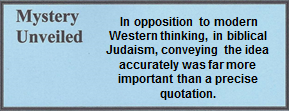18.01.05 Lk. 24:4-8
WOMEN REMINDED OF PROPHECY
4 While they were perplexed about this, suddenly two men stood by them in dazzling clothes. 5 So the women were terrified and bowed down to the ground.
“Why are you looking for the living among the dead?” asked the men. 6 “He is not here, but He has been resurrected! Remember how He spoke to you when He was still in Galilee, 7 saying, ‘The Son of Man must be betrayed into the hands of sinful men, be crucified, and rise on the third day’?” 8 And they remembered His words.
Concerning the events that occurred at this time,[1] these were recorded by the gospel writers:
- They recorded that the resurrection occurred on or about the dawn of the day. Whether there was sunshine is hardly the point of argument since this is obviously an opinion of the writer, especially if there were springtime clouds in the sky.
- Mary, from the village of Magdala, was one of several persons who discovered that the body of Jesus was missing. She was His close friend and an important witness, obviously more important than the other women to the gospel writers.
A Lesson in First Century Hermeneutics:
18.01.05.X An Idea vs. A Quotation
In modern thinking, nothing can be more accurate than a precise quotation. However, first century Jewish people did not always think that way. Sometimes the idea was of over-riding significance. Usually the issue is that one writer indicated that there were either two angels, two demoniacs, or two of something else, and another writer referred only to one of those two beings. Obviously this creates a sense of error to modern readers. However, the ancients did not think that the important issue was the number of beings present, but what happened. The case of how many angels were at the tomb is this – an essential difference between western and Eastern Oriental (Jewish) thinking.
18.01.05.Q1 How many angels were at the tomb of Jesus: one or two (Lk. 24:4; Jn. 20:12 vs. Mt. 28:2; Mk. 16:4)?
Luke mentioned two angels, while the other writers made reference to only one. Furthermore, the words spoken by the angels differ in the narratives. Considering the gospels were written some thirty years after these events occurred, it should not be surprising that only the idea of what happened was recorded, rather than actual quotations. In Jewish thinking, conveying the idea was far more important than actual quotations. Even in modern courts today, an exact quotation from memory is not expected thirty years after the event. If precision is claimed, the witness becomes suspect. Likewise, all of the gospel writers present the same idea, even though the words are somewhat different.[2] It is a classic example of ipsissima verba and ipsissima vox that was previously described.[3] Another example is the Roman titulus, the sign on the cross that identified Jesus, where each of the four gospel writers wrote the same theme but used different wording.

Critics argue that this clearly indicates that Scripture has error, yet they fail to admit that the Holy Writ is far superior to all other historical documents.[4] For example, the earliest sources that detail the burning of Rome have far greater discrepancies concerning the cause of the fire and how it spread. Some writers said the entire city was burned, while others claim only three districts were destroyed. No one questions the historicity of the fire and the related details, yet the same critics will question the entire gospel narrative on a minor issue.[5] In a similar case, Apion, a Greek intellectual who wrote the History of Egypt, an anti-Semitic work that circulated in the first century (A.D.) Roman world. In response to this antagonist, Josephus defended his faith and the inspiration of Jewish Scripture, which included the following:
For we have not an innumerable multitude of books among us, disagreeing from and contradicting one another [as the Greeks have], but only twenty-two books,[6] which contain the records of all the past times; which are justly believed to be divine; and of them five belong to Moses which contain his laws and the traditions of the origin of mankind till his death.
Josephus, Against Apion 1.8 (38-39a)
[1]. Mt. 28:1-8; Mk. 16:1-8; Lk. 24:1-10; Jn. 20:1-8.
[2]. Kaiser, Davids, Bruce, and Brauch, Hard Sayings of the Bible. 506.
[3]. See 08.03.04.Q4, “What is the significance of verbal statements, “Ipsissima Verba” and “Ipsissima Vox?’ ”
[4]. Barclay, Jesus. 243.
[5]. Maier, The First Easter. 94.
[6]. Some Books in the Hebrew Bible, such as First and Second Kings, are a single text. Josephus later mentioned the minor prophets.